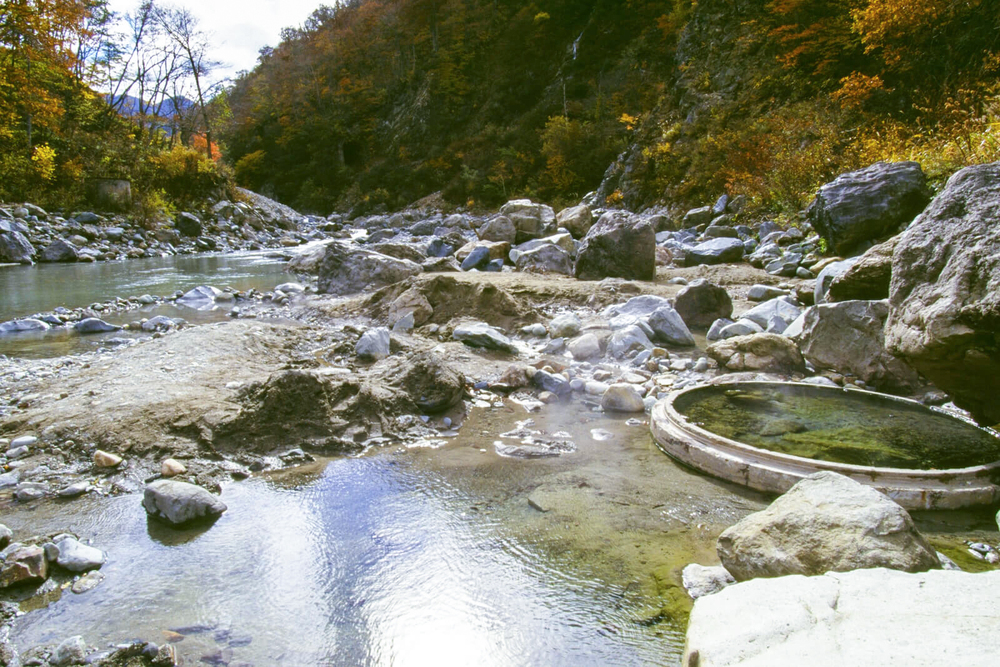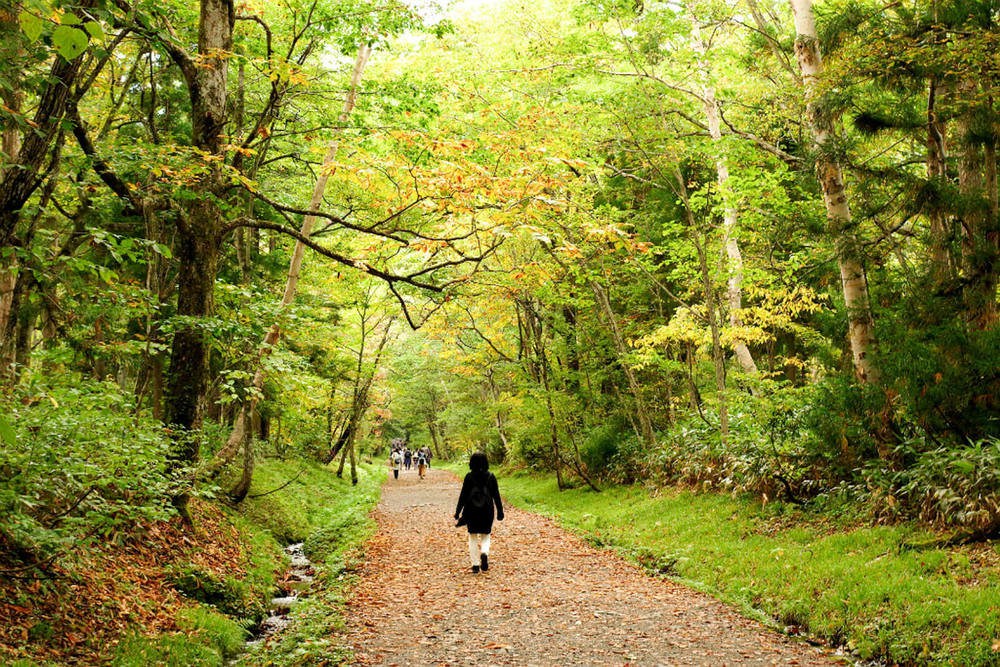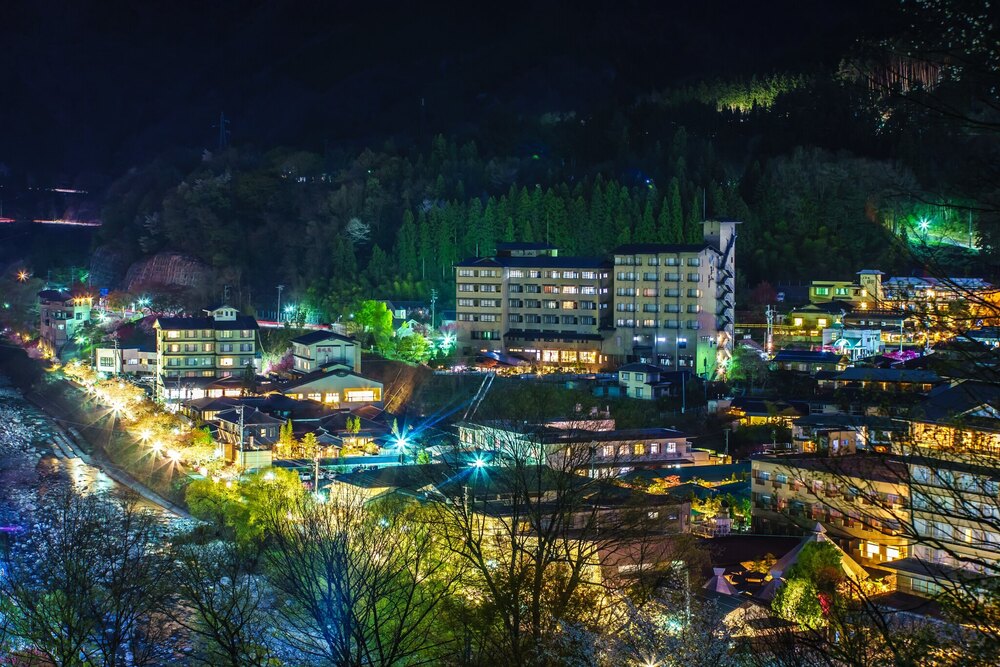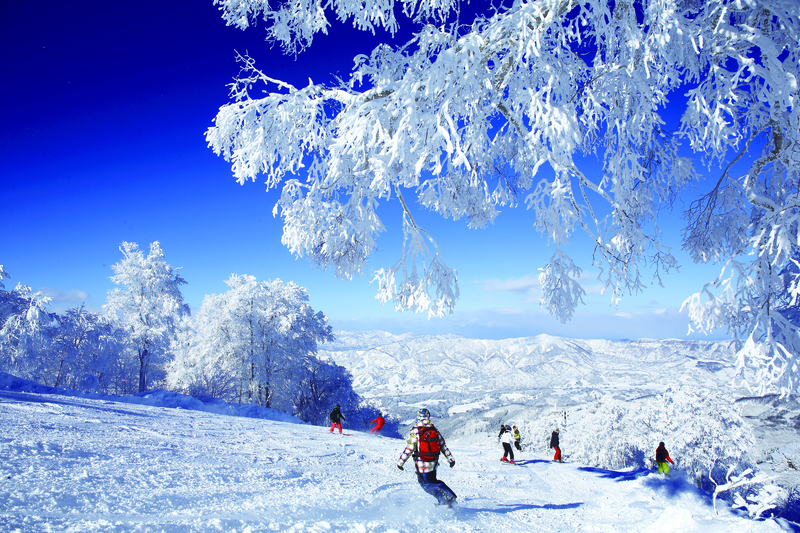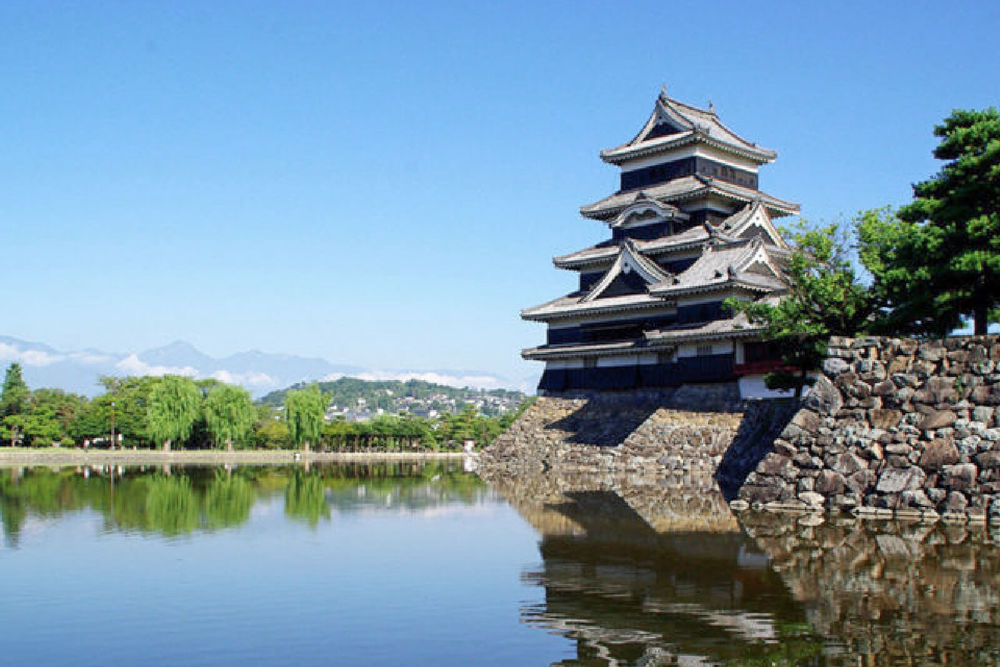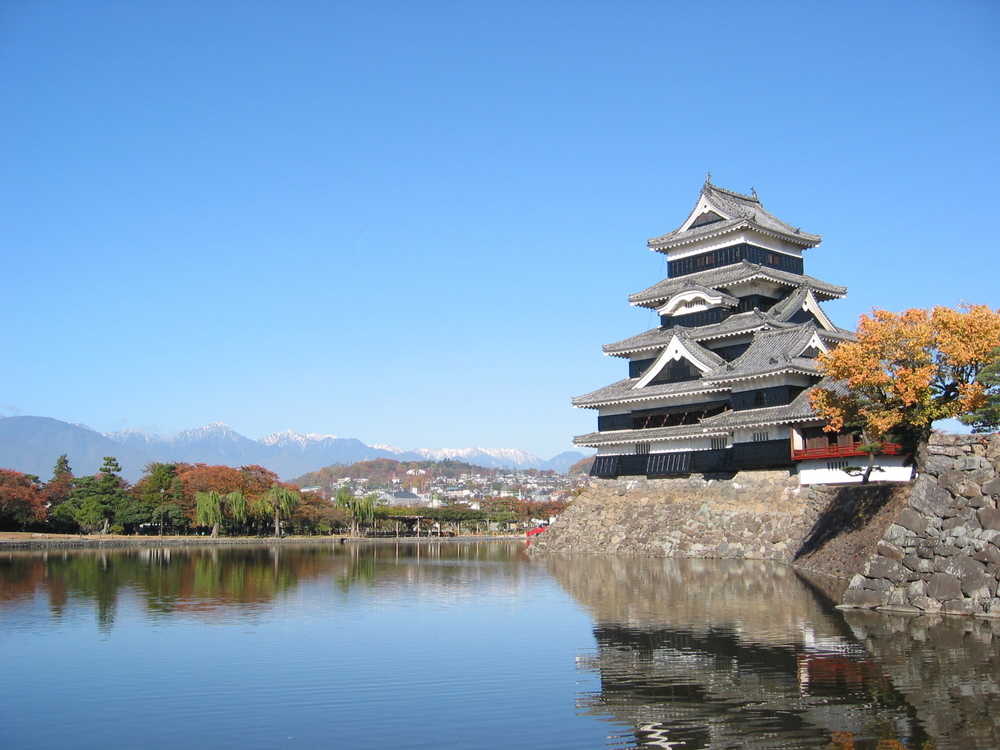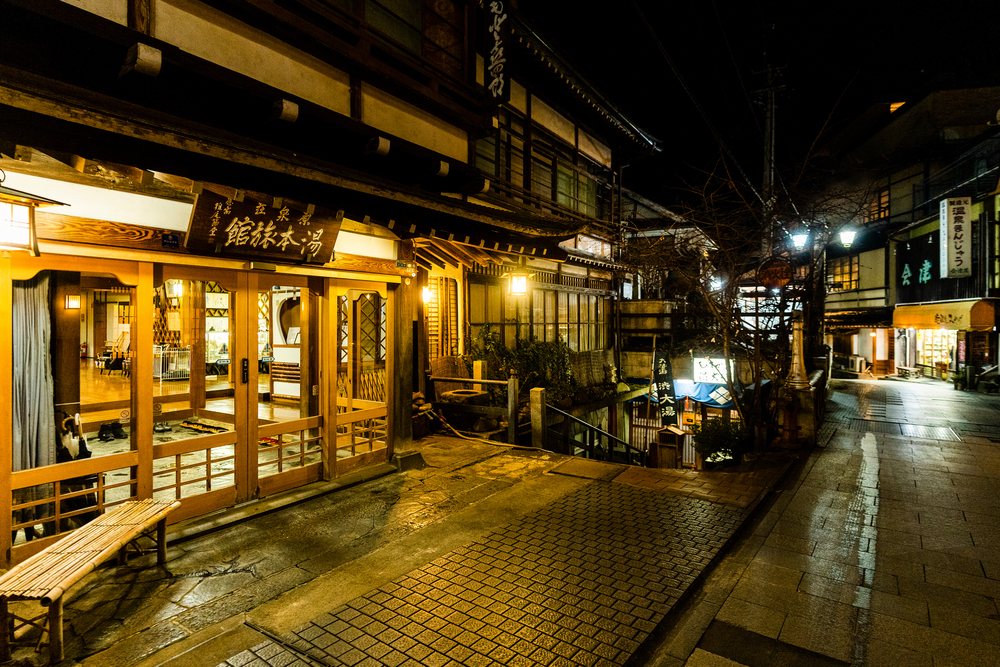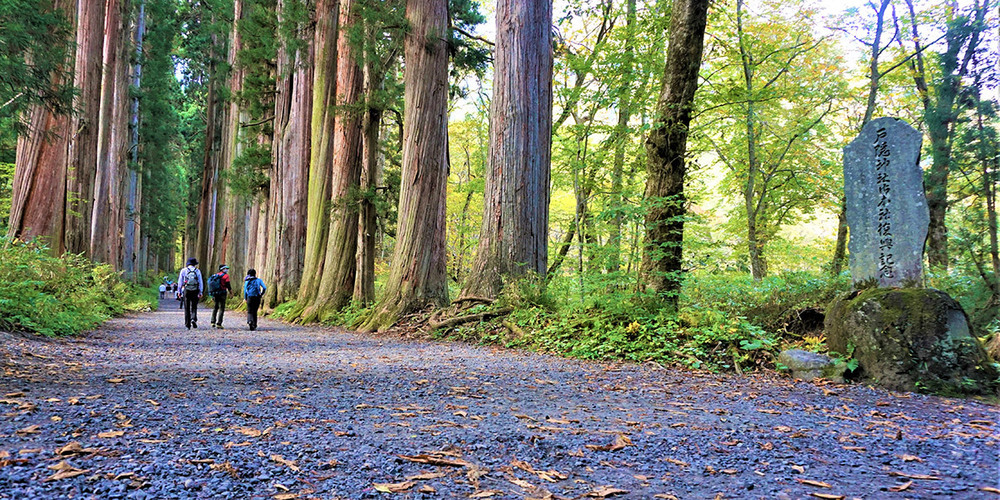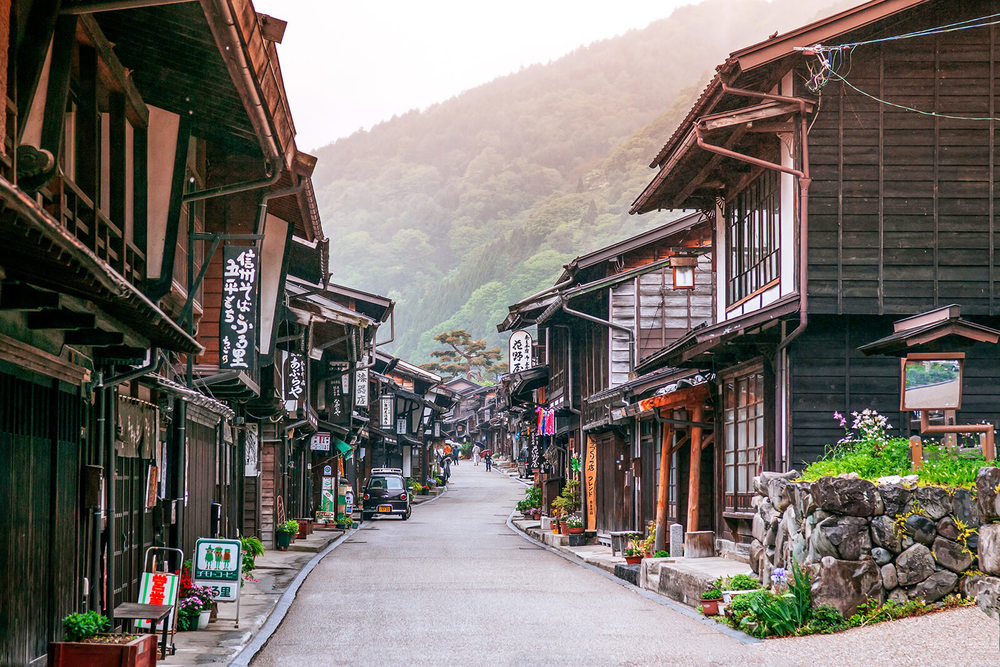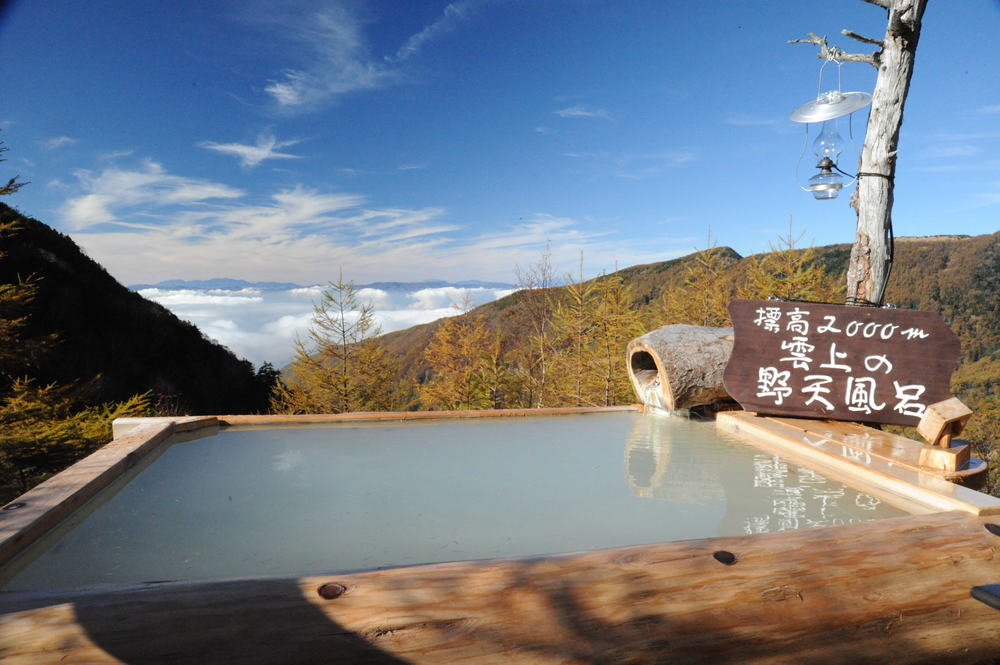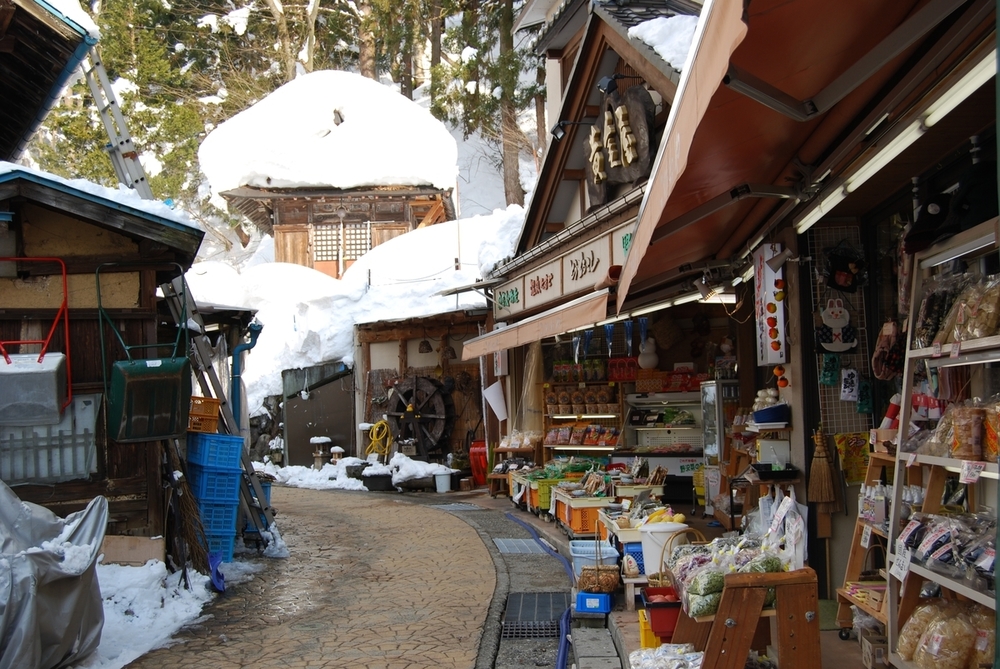A Beautiful Spring Day in Ueda
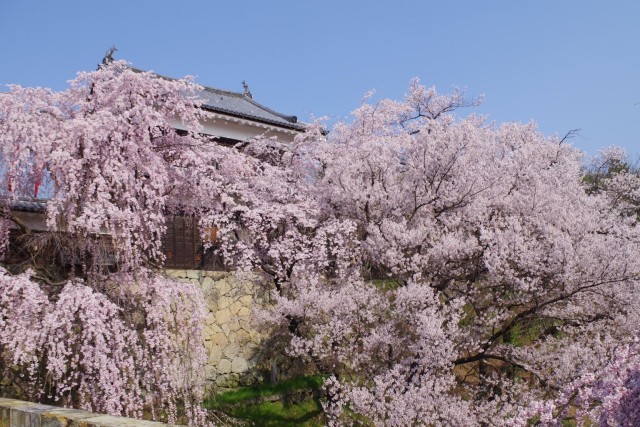
See incredible cherry blossoms at Ueda Castle and visit Bessho Onsen for its ancient temples and soothing hot springs.
Mid April is peak cherry blossom season in Nagano. Hillsides, parks, and city streets are covered in beautiful pink and red flowers, and locals spend their evenings and weekends flower-viewing and enjoying food and sake. Whether you agree with the Japanese saying “hana yori dango (sweet dumplings over flowers),” or want nothing else but to stare at cherry blossoms all day, feast your eyes and stomach during a spring day in Ueda.
Ueda Castle’s Cherry Blossom Festival
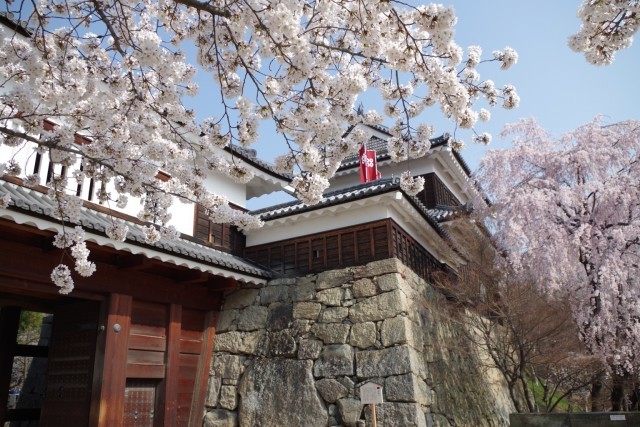
Ueda’s cherry blossoms bloom slightly earlier than the rest of the prefecture, and Ueda Castle is famous for its Senbon-zakura festival. The castle grounds are covered in a variety of flowering cherry trees, from weeping shidare-zakura trees to the popular somei yoshino cherries which bloom in bright white bunches. The castle towers and Sanada family flags peak out above the clouds of white and pink. At night, the grounds are illuminated and yatai food stalls line the outer moat of the castle.
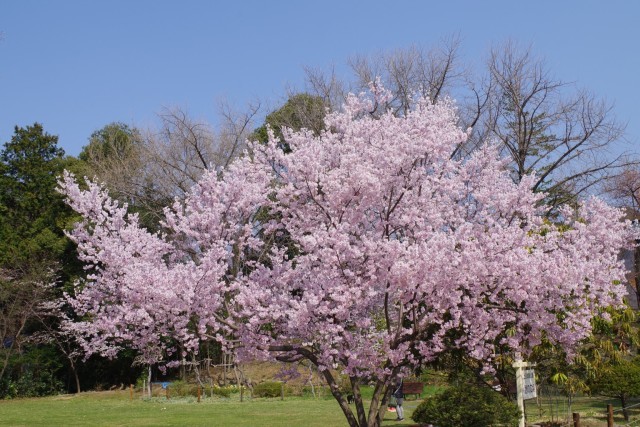
Delicious local food in Yanagi-machi
A 10-minute walk from the castle is the Yanagi-machi street, a remnant of Ueda’s castle town days and part of the Hokkoku-kaido road that connected the Nakasendo to the Hokurikudo. The old buildings of Yanagi-machi now house numerous shops featuring local foods and produce. You can try some award-winning sake at Okazaki Brewery, enjoy local wine from Hasumi Farm & Winery’s small café and bar, enjoy delicious artisan bread at Levain, or buy some shinshu miso at Takeda Miso. With the variety here alone, you can easily make a picnic to take back to the park, or have lunch at one of the several restaurants along the street.
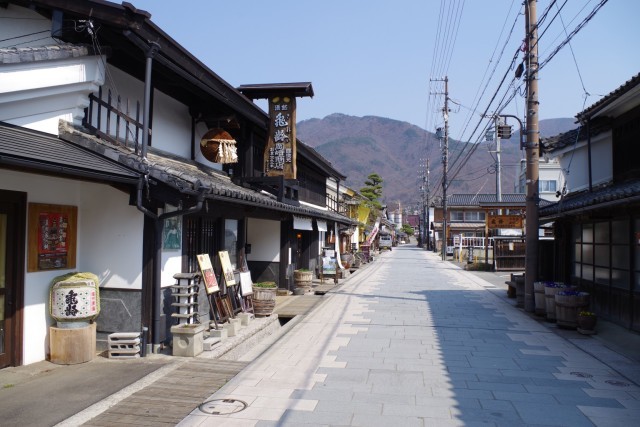
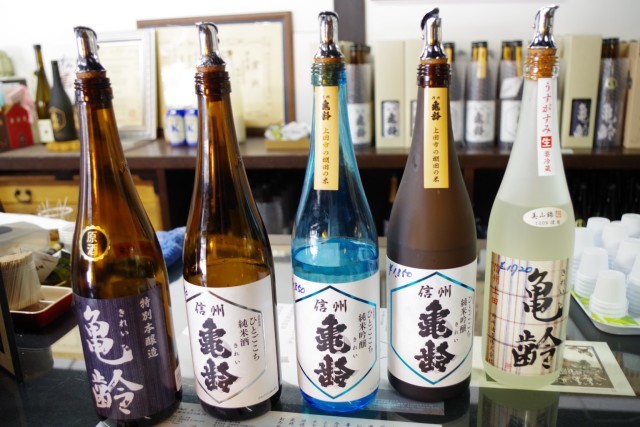
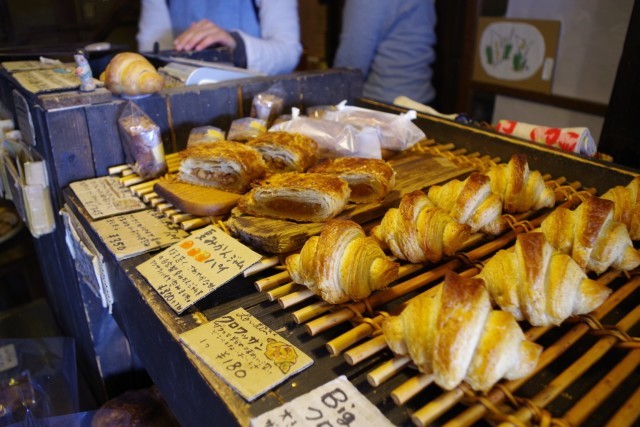
The Ueda area is also home to a surprising number of chic cafes where you can relax, chat, and people-watch after a morning or afternoon of cherry blossom viewing.
And after a day of walking around in the sun, nothing beats relaxing in soothing hot springs.
One of Ueda’s Treasures, Bessho Onsen
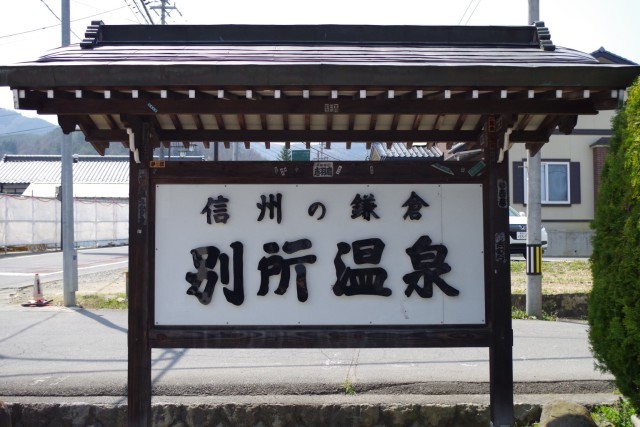
Located about 30 minutes from Ueda on the Ueda Dentetsu line train, Bessho Onsen is a quiet hamlet rich in hot springs and historical buildings. It is known as the “Kamakura of Shinshu” thanks to its well-preserved temples and tranquil atmosphere. It is also home to one of Japan’s national treasures: the eight-sided pagoda of Anraku-ji temple.
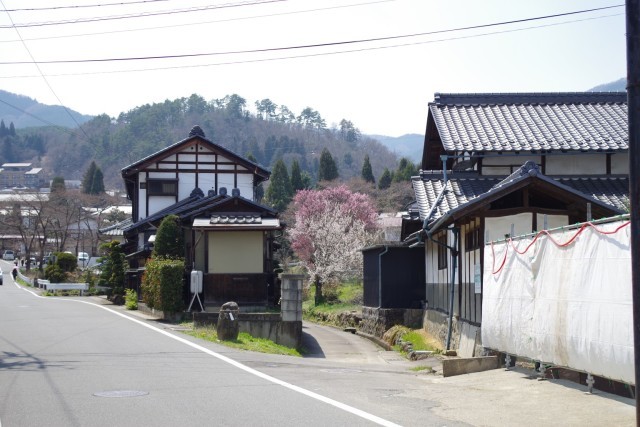
From the moment you arrive in Bessho Onsen, you enjoy a certain quaint hospitality as the station attendant greets you in colorful and casual kimono. The station itself is but one room and painted pastel yellow and blue. There are few buildings around the station and several cherry trees dot the landscape. Several welcome signs crown the roads leading into the onsen village.
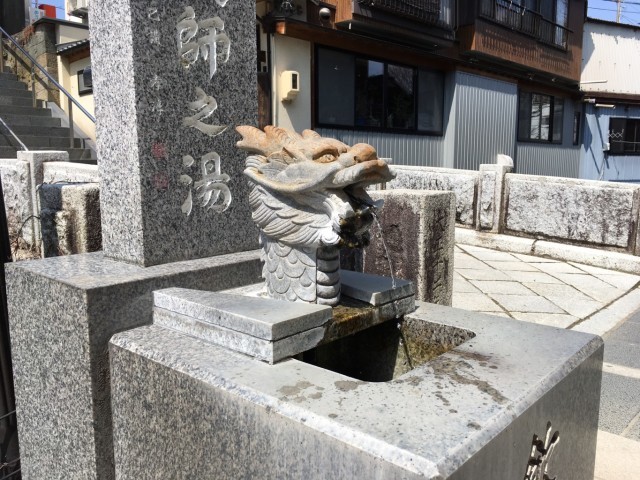
There are gutters along the roads flowing with snow melt or possibly hot spring water, and a few foot baths sit along the main road as well. Little stone dragon spouts can be found throughout town, spitting out drinkable hot spring water. Like a true onsen therapy area, there are instructions for proper onsen water intake next to them (all in Japanese, of course). There are also three soto-yu baths here where you can soak away your worries and enjoy the beauty benefits of its alkaline water. Of course, hotels here also have their own natural hot spring baths which you can enjoy if you spend the night.
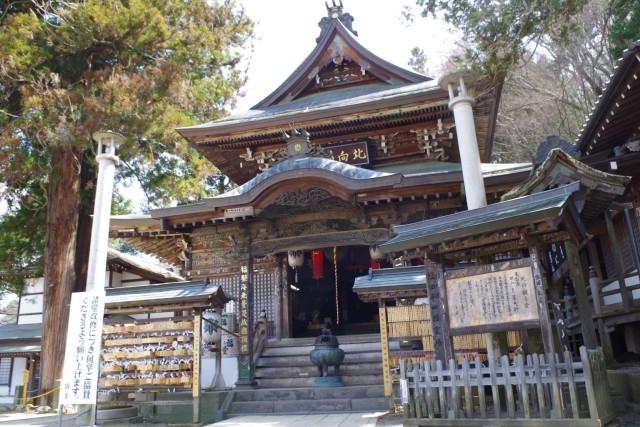
About 10 minutes from the station you’ll find Kitamuki Kannon, one of the famous temples of Bessho Onsen. Kitamuki means “north-facing,” and is positioned towards Zenkoji, which faces south. It is often said that if you don’t visit Kitamuki Kannon and Zenkoji together your spirit will be put out of balance. The temple grounds are raised above the surrounding landscape so you can enjoy views of the Shioda plains below.
Heading down the stairs and straight through Bessho you’ll reach Anrakuji temple, home to the eight-sided pagoda which is a Japanese national treasure. After a steep ascent through a wooded area, you arrive at a clearing where the pagoda stands almost 19 meters tall. Historians are unsure exactly when it was built, but it is estimated to have been built between 1277 and 1333 during the late Kamakura period. Its construction used the latest techniques present in mainland China at that time, and is one of the only remaining examples of an eight-sided pagoda in Japan, and of a pagoda in a zen temple for that matter. Using no metal fasteners in construction, the joints that hold it together are truly complex.
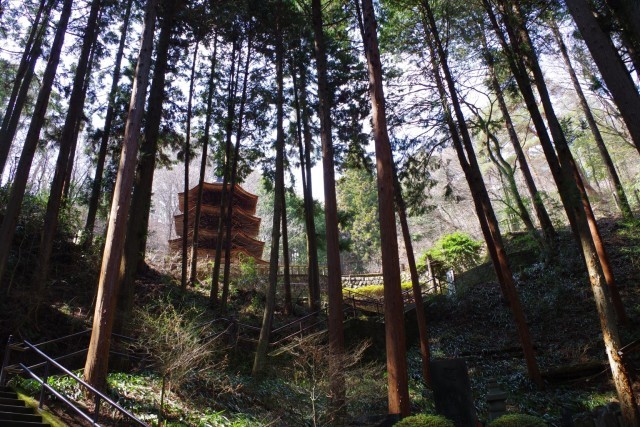
Ueda and Bessho Onsen make for a wonderful escape on a spring day, offering country scenery, cherry blossoms and beautiful traditional buildings. Pair this with delicious local food and hot springs and it’s a perfect choice for a spring holiday!
Update:2020/01/17


